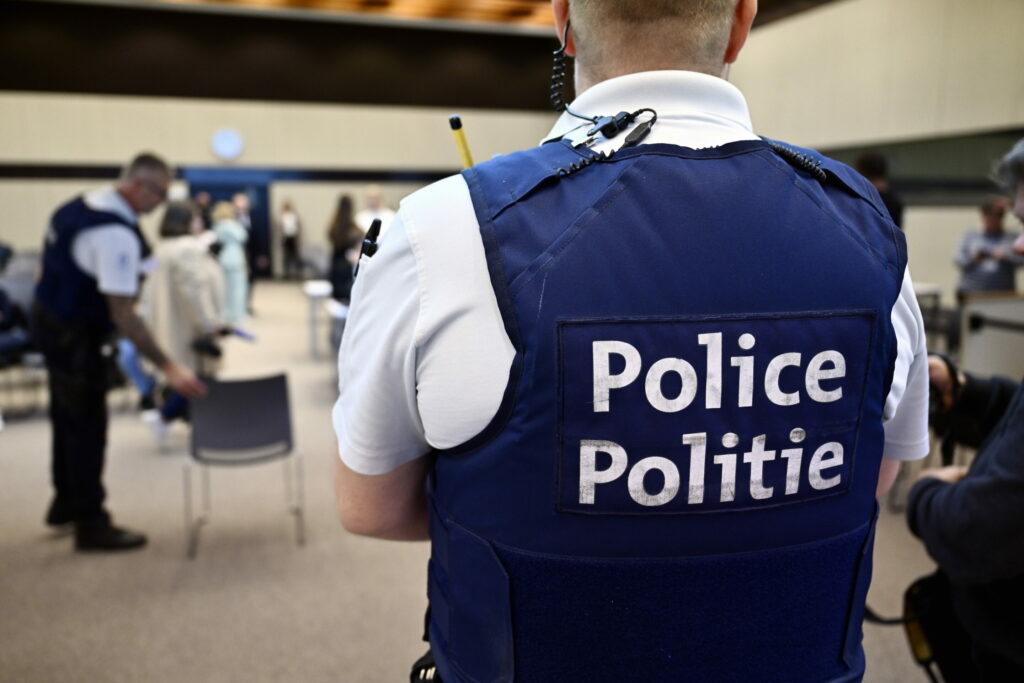2024 was marked by uncertainty and upheaval, with tensions rising around Europe and new challenges emerging within the Union. At the heart of this, Belgium has been rocked by elections that left the country without a government to act on policy decisions.
2025 will be a pivotal year for Europe as it seeks stability and security in a changing global order. The Brussels Times has asked industry experts what developments they foresee and how life in Belgium will be affected.
Jelle Janssens is an associate professor of criminology at Ghent University. He is regularly cited by national media channels about the evolution of criminal activity in Belgium.
What is the biggest challenge for the Belgian police structure next year?
The biggest challenge for the Belgian integrated police is balancing the roles of the federal and local police in criminal investigations and developing their information and communications systems. The regulation that sets out the responsibility of each level was written in 2002 and is now outdated.
It spells out the division between the federal and local police in dealing with criminal investigations but the nature of crimes has significantly advanced, particularly in the fields of cybercrime, financial and economic crime, human trafficking and smuggling.
Furthermore, the public prosecutor increasingly calls on local police forces to tackle the booming drugs market – work that according to the legislation from 2002 is the duty of the federal police.
Now, the Federal Government is likely to invest in the federal police to deal with drug trafficking. My concern is that the federal police will strictly focus on cocaine trafficking while other important phenomena will be left to the local police. This will put additional strain on the relationship between the two entities.
Integration is another weak spot for integrating police forces. The only police force in Belgium capable of developing the necessary ICT tools seems to be the local police of Antwerp.
The shortcomings of an integrated policing system are not a manifestation of budget cuts but of failed leadership, inherent bureaucratic barriers and inflexibility. If the federal police cannot introduce an ICT architecture for the integrated police, the fragmentation of the integrated police will most likely continue.
What is the outlook for 2025 when it comes to police reform?
The focus for politicians is combatting drug-related crime as this is the main story in the media and has a direct impact on citizens' feelings of (in)security.
More powers will probably be given to the drug commissioner, who is doing a good job but this will not address the overarching issues of the police force.
But structural changes will be slow: mergers between forces are not being made mandatory; the new law on police financing will probably not materialize (although initiatives have been taken); supervisory structures will not be revised/optimised; the statute of the police remains the same as before, including with issues such as flexi jobs.
There was also a pilot project that introduced college modules in the basic training programme of police officers; this will likely be rolled out across the country.
Will things get better or worse?
I believe the situation will get worse in 2025. Some small reforms will be introduced but they aim for quick wins. There still isn't a long-term vision for police reform and the imbalance between federal and local forces will increase.
What does Belgium most need to improve in terms of police management?
We need a fresh approach to police management. The current community-oriented policing policy is not being assessed and intelligence-led policing is not being properly implemented.
There are central questions that we must address as well. Specifically: How can we measure police performance? We currently have no idea as this is something the reformers of 1998 neglected.
What are the biggest opportunities/developments to watch for (in Belgium and Brussels)?
In Belgium it will be increased investment in the security architecture. This isn't just the police themselves, they are one small part of the country's security architecture. Investments in the military/judiciary/customs/police/prison sector might do three things:
- It might trigger a debate on who is doing what – can the military take on duties assigned to the police? Or vice-versa?
- It might contribute to a culture of awareness that safety and security are important policy domains.
- It might end the default argument of security organisations, which inevitably blame their problems and poor performance on a lack of personnel.
If additional personnel are provided we might finally start reflecting on the structures in which security organisations are working. This might create a more coherent security and safety policy at different levels of government so that the focus finally becomes the safety and security of Belgian citizens.
In Brussels specifically the focus will be on policing the illicit drug trade, which will influence policy on the merger of the six police zones. This might lead us to start thinking about a coherent safety and security policing for the whole of Brussels.

